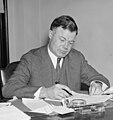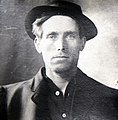
Introduction

- In trade unions, workers campaign for higher wages, better working conditions and fair treatment from their employers, and through the implementation of labour laws, from their governments. They do this through collective bargaining, sectoral bargaining, and when needed, strike action. In some countries, co-determination gives representatives of workers seats on the board of directors of their employers.
- Political parties representing the interests of workers campaign for labour rights, social security and the welfare state. They are usually called a labour party (in English-speaking countries), a social democratic party (in Germanic countries), a socialist party (in Romance countries), or sometimes a workers' party.
- Though historically less prominent, the cooperative movement campaigns to replace capitalist ownership of the economy with worker cooperatives, consumer cooperatives, and other types of cooperative ownership. This is related to the concept of economic democracy.
The labour movement developed as a response to capitalism and the Industrial Revolution of the late 18th and early 19th centuries, at about the same time as socialism. The early goals of the movement were the right to unionise, the right to vote, democracy and the 40-hour week. As these were achieved in many of the advanced economies of western Europe and north America in the early decades of the 20th century, the labour movement expanded to issues of welfare and social insurance, wealth distribution and income distribution, public services like health care and education, social housing and common ownership. (Full article...)
Selected article
Cesario Estrada Chavez (/ˈtʃɑːvɛz/; Spanish: [ˈtʃaβes]; March 31, 1927 – April 23, 1993) was an American labor leader and civil rights activist. Along with Dolores Huerta, he co-founded the National Farm Workers Association (NFWA), which later merged with the Agricultural Workers Organizing Committee (AWOC) to become the United Farm Workers (UFW) labor union. Ideologically, his worldview combined leftist politics with Catholic social teachings.
Born in Yuma, Arizona, to a Mexican-American family, Chavez began his working life as a manual laborer before spending two years in the U.S. Navy. Relocating to California, where he married, he got involved in the Community Service Organization (CSO), through which he helped laborers register to vote. In 1959, he became the CSO's national director, a position based in Los Angeles. In 1962, he left the CSO to co-found the NFWA, based in Delano, California, through which he launched an insurance scheme, a credit union, and the El Malcriado newspaper for farmworkers. Later that decade he began organizing strikes among farmworkers, most notably the successful Delano grape strike of 1965–1970. Amid the grape strike his NFWA merged with Larry Itliong's AWOC to form the UFW in 1967. Influenced by the Indian independence leader Mahatma Gandhi, Chavez emphasized direct nonviolent tactics, including pickets and boycotts, to pressure farm owners into granting strikers' demands. He imbued his campaigns with Roman Catholic symbolism, including public processions, Masses, and fasts. He received much support from labor and leftist groups but was monitored by the Federal Bureau of Investigation (FBI).
In the early 1970s, Chavez sought to expand the UFW's influence outside California by opening branches in other U.S. states. Viewing illegal immigrants as a major source of strike-breakers, he also pushed a campaign against illegal immigration into the U.S., which generated violence along the U.S.-Mexico border and caused schisms with many of the UFW's allies. Interested in co-operatives as a form of organization, he established a remote commune at Keene. His increased isolation and emphasis on unrelenting campaigning alienated many California farmworkers who had previously supported him and by 1973 the UFW had lost most of the contracts and membership it won during the late 1960s. His alliance with California Governor Jerry Brown helped ensure the passing of the California Agricultural Labor Relations Act of 1975, although the UFW's campaign to get its measures enshrined in California's constitution failed. Influenced by the Synanon religious organization, Chavez re-emphasized communal living and purged perceived opponents. Membership of the UFW dwindled in the 1980s, with Chavez refocusing on anti-pesticide campaigns and moving into real-estate development, generating controversy for his use of non-unionized laborers. (Full article...)May in Labor History
Significant dates in labour history.
- May 01 - In 1884 Proclamation of the demand for eight-hour workday in the United States. Two years later, in 1886, the general strike which eventually won the eight-hour workday in the United States, began. These events are today commemorated as May Day or Labor Day in most industrialized countries; Thomas Lewis died; the 1946 Pilbara strike occurred in Australia; International Woodworkers of America merged with the International Association of Machinists; Mike Watson was born; the Taksim Square massacre occurred in Turkey in 1977
- May 02 - Nazi Germany outlawed free trade unions and established the German Labour Front; Bernice Fisher died
- May 03 - The International Typographical Union was founded; the Bay View Tragedy occurred in 1886 in the U.S.
- May 04 - Haymarket Riot occurred in 1886 in the U.S.
- May 05 - John Sweeney was born; Jackie Presser stepped down as Teamsters president due to cancer; James Duncan was born
- May 06 - Miguel Contreras died; Frank Fitzsimmons died; Ludvik Buland was born
- May 07 - Miguel Contreras was born; Maurice Hutcheson was born; David Sullivan was born
- May 08 - Jerome Wurf was born; the Hard Hat riot occurred in the U.S. in 1970
- May 09 - Elias Motsoaledi died; 1934 West Coast Waterfront Strike began in the U.S.
- May 10 - Isaac Theophilus Akunna Wallace-Johnson died; Walter Philip Reuther died; the 2008 Skorpion Zinc Strike began in Namibia
- May 11 - William Konyha was born; Pullman Strike began in 1894 in the U.S.
- May 12 - Coal Strike of 1902 began in the U.S.; the American Maritime Officers was founded
- May 13 - Henk Sneevliet was born
- May 14 - Arthur Moore (labor leader) was born; the Ådalen shootings occurred in Sweden in 1931
- May 15 - Pope Leo XIII issued Rerum Novarum; Winnipeg General Strike of 1919 began; George Mock stepped down as president of the Teamsters after eight days; the Ulster Workers' Council Strike began in 1974 in Northern Ireland; the U.S. Supreme Court decided Gompers v. Buck's Stove and Range Co.; Arthur Creech Jones was born
- May 16 - The Minneapolis General Strike of 1934 began in the U.S.; the Iraqi Federation of Trade Unions was founded; the U.S. Supreme Court decided NLRB v. Mackay Radio & Telegraph Co.; A. Philip Randolph died
- May 17 - The first Starbucks Workers Union was organized; former trade union leader Francisco Largo Caballero was deposed as prime minister of Spain
- May 18 - Bill Haywood died; the Atlanta transit strike of 1950 began in the U.S.
- May 19 - James P. Hoffa was born; the Battle of Matewan began in 1920 in the U.S.
- May 21 - Cyrus S. Ching was born
- May 22 - Agustín Tosco was born; the Steel Workers Organizing Committee was disbanded in 1942; the United Steel Workers of America was founded in 1942
- May 23 - The "Battle of Toledo" occurred during the Auto-Lite Strike in 1934 in the U.S.
- May 24 - The Pennsylvania Association of Staff Nurses and Allied Professionals was founded; Peter J. Brennan was born
- May 25 - Philip Murray was born; the Remington Rand strike of 1936–1937 began in the U.S.; Basdeo Panday was born; Will H. Daly was born
- May 26 - Actors' Equity Association was founded; the Ohio Federation of Teachers was founded
- May 27 - The U.S. Supreme Court decided In re Debs
- May 29 - The Disney animators' strike began in 1941 in the U.S.; the Cordobazo uprising began in 1969 in Argentina; the 2006 TTC wildcat strike began in Canada
- May 30 - William Sidell was born; the Memorial Day massacre of 1937 occurred in the U.S.; the U.S. Supreme Court decided Lehnert v. Ferris Faculty Association
- May 31 - W. A. Boyle died
More Did you know (auto-generated)
- ... that during the 1913 El Paso smelters' strike the Industrial Workers of the World and the Western Federation of Miners competed to organize the strikers with their respective labor unions?
- ... that in the 1951 court case Kuzych v White, on appeal from the British Columbia Court of Appeal, five law lords of the British Judicial Committee ruled in favour of a Communist-led trade union?
- ... that up to 129,000 Canadian federal workers went on strike?
- ... that in 1969, the first women's strike for equal pay in the Netherlands was called in a cigar factory in Nieuwe Pekela?
- ... that Jennifer Bates led thousands of Amazon warehouse workers to petition a vote for a union in Bessemer, Alabama?
- ... that after being arrested for organizing a general strike in 1920, S. Girinis was sent to the Soviet Union following a Soviet-Lithuanian exchange of political prisoners?
Related Portals
Selected image
Selected Quote
"Let the workers organize. Let the toilers assemble. Let their crystallized voice proclaim their injustices and demand their privileges. Let all thoughtful citizens sustain them, for the future of Labor is the future of America."
|
— John L. Lewis. |
Did you know
- ...that labor union activist Sam Pollock, who helped lead the Auto-Lite Strike, is the grandfather of noted experimental filmmaker Damon Packard?
- ...that Alliance for Labor Action launched a $4 million organizing drive targeting African American workers in Atlanta, Georgia, in the fall of 1969?
- ...that in Anderson v. Mt. Clemens Pottery Co. the U.S. Supreme Court held that preliminary work activities should be included as working time under the Fair Labor Standards Act?
Topics
Get involved
Associated Wikimedia
The following Wikimedia Foundation sister projects provide more on this subject:
-
 Commons
Commons
Free media repository -
 Wikibooks
Wikibooks
Free textbooks and manuals -
 Wikidata
Wikidata
Free knowledge base -
 Wikinews
Wikinews
Free-content news -
 Wikiquote
Wikiquote
Collection of quotations -
 Wikisource
Wikisource
Free-content library -
 Wikiversity
Wikiversity
Free learning tools -
 Wiktionary
Wiktionary
Dictionary and thesaurus
-

-

-

-

-
Random portal
Purge server cache



































































